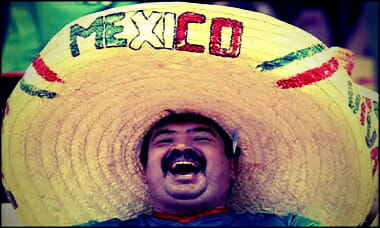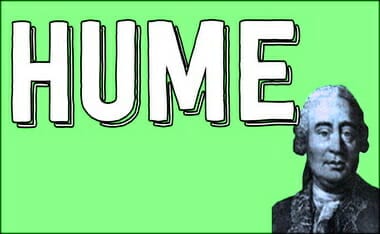
Month: March 2016


Wearing a Sombrero Is Racist (White Guilt)

Believe it or not, this is all related… teaching young minds racism early: “WHITE GUILT” Video Shown to Virginia High School Students: “The Unequal Opportunity Race” (below/right).
Breitbart brings more of this embarrassment to our attention:
Bowdoin Students in Therapy After ‘Culturally Appropriating’ Tequila Party
Bowdoin College, a private liberal arts college in Maine, has offered counseling to students who felt “injured and affected” by a group of classmates who attended a Tequila-themed birthday party on campus wearing miniature sombreros.
Two members of Bowdoin’s student government, Duncan Cannon and Claire McInerney, are now facing impeachment after the college administration launched a crackdown.
“This has to do with our social code and the context of other issues we’ve been dealing with as a college,” Bowdoin’s president, Clayton Rose, told the Portland Press Herald.
Michelle Kruk, a senior and vice president of student government, told the paper “It’s not about tequila or sombreros.”
“It’s about casual racial and ethnic stereotyping and cultural insensitivity at a school that has seen far too many examples of both.”…
And another blogger notes well the audacity of some to wear a sombrero — Valerie Love over at Watchman writes what you think is a joke, an SNL skit ~ but unfortunately… not for the cream-puffs being raised today:
…“To avoid this oversight in the future, the document details a list of “recommendations” for the school to better deal with future sombrero/tequila tragedies and what they see as a disturbing trend of “cultural appropriation” on campus.”
[….]
“Don’t buy sombreros, ponchos or fake mustaches.” – “Our culture is not for you to create costumes out of.”
“No more ‘wetback’ jokes.”
“Stop calling guacamole ‘guac.’” – Her argument is that guacamole, as a word, “has significance as it comes from indigenous Nahuatl language, so please make the effort to pronounce it in its entirety.” Less than two percent of Mexico’s population speaks Nahuatl (once known as Aztec).
Don’t modify our words to phonetically match your fraternity or sorority name.” She hates that fiesta can become “Phiesta,” for example. She hates “guakamole.”
So if you are in Boston and want to look up Dani Marrero, do not wear a poncho, sombrero or fake mustache. Do not offer to take her out for guac or attend a fiesta….
These SNL type skits will be a thing of the past however.
Comedy Break
This seems as good a place as any to post this video:
Gay Patriot has a recent post discussing this infantalizing of young America:
These snowflakes really believe that allowing people to speak opinions that are different than theirs is the worst form of oppression that has ever been visited on any people at any time in history.

Ravi Zacharias On Free Will and Evil In the World

Are Miracles Even Possible? David Hume
Here is Hume’s basic premise:
“And certainly, there’s no doubt about it, that in the past, and I think also in the present, for many evolutionists, evolution has functioned as something with elements which are, let us say, akin to being a secular religion … And it seems to me very clear that at some very basic level, evolution as a scientific theory makes a commitment to a kind of naturalism, namely, that at some level one is going to exclude miracles and these sorts of things come what may.”
~ Ruse, Michael. (1993) “Nonliteralist Antievolution” AAAS Symposium: “The New Antievolutionism,” February 13, 1993, Boston, MA
Video Description Resources:
- Join us at: http://www.inspiringphilosophy.org
- To help support this ministry click here.
Are Miracles even possible events in the natural world? Theists claim miracles have happened, but is there any reason to think they could even occur? This video answers these questions.
Sources:
- An Enquiry Concerning Human Understanding – David Hume (Article)
- Lecture 12: Does God Really Act? (Video)
- The Blackwell Companion to Natural Theology (Book)
Chapter 9 – Kai-Man Kwan
Chapter 11 – Timothy and Lydia McGrew
- Miracles – CS Lewis (Book)
- Hume’s Abject Failure – John Earman (Book)
- Summa Contra Gentiles – Thomas Aquinas (Books)
- John Lennox – Science And Miracles (Video)
- Divine Action – Keith Ward (Book)
- Philosophical Foundations for a Christian Worldview – JP Moreland & William Lane Craig (Book)
- Interdisciplinary Perspectives on Cosmology and Biological Evolution – Hilary D. Regan and Mark Worthing (Book)
If science is based on the law of causality then do miracles get in the way? Scientist and philosopher John Lennox explores this question, which was made popular by David Hume.
Some quotes:
Professor: “Miracles are impossible Sean, don’t you know science has disproven them, how could you believe in them [i.e., answered prayer, a man being raised from the dead, etc.].”
Student: “for clarity purposes I wish to get some definitions straight. Would it be fair to say that science is generally defined as ‘the human activity of seeking natural explanations for what we observe in the world around us’?”
Professor: “Beautifully put, that is the basic definition of science in every text-book I read through my Doctoral journey.”
Student: “Wouldn’t you also say that a good definition of a miracle would be ‘and event in nature caused by something outside of nature’?”
Professor: “Yes, that would be an acceptable definition of ‘miracle.’”
Student: “But since you do not believe that anything outside of nature exists [materialism, dialectical materialism, empiricism, existentialism, naturalism, and humanism – whatever you wish to call it], you are ‘forced’ to conclude that miracles are impossible”
Norman L. Geisler & Peter Bocchino, Unshakable Foundations: Contemporary Answers to Crucial Questions about the Christian Faith (Minneapolis, MN: Bethany House, 2001), 63-64.
Christians claim that the birth, death, resurrection and ascension of Jesus Christ is the central chapter of world history. How do you measure such a one-off event? The writer, C.S. Lewis develops a reliable test: Does this “Grand Miracle” fit in with the rest of the Author’s other work – Nature itself?
The first Red Herring is this. Any day you may hear a man (and not necessarily a disbeliever in God) say of some alleged miracle, “No. Of course I don’t believe that. We know it is contrary to the laws of Nature. People could believe it in olden times because they didn’t know the laws of Nature. We know now that it is a scientific impossibility.”
By the “laws of Nature” such a man means, I think, the observed course of Nature. If he means anything more than that he is not the plain man I take him for but a philosophic Naturalist and will be dealt with in the next chapter. The man I have in view believes that mere experience (and specially those artificially contrived experiences which we call Experiments) can tell us what regularly happens in Nature. And he finks that what we have discovered excludes the possibility of Miracle. This is a confusion of mind.
Granted that miracles can occur, it is, of course, for experience to say whether one has done so on any given occasion. But mere experience, even if prolonged for a million years, cannot tell us whether the thing is possible. Experiment finds out what regularly happens in Nature: the norm or rule to which she works. Those who believe in miracles are not denying that there is such a norm or rule: they are only saying that it can be suspended. A miracle is by definition an exception.
[….]
The idea that the progress of science has somehow altered this question is closely bound up with the idea that people “in olden times” believed in them “because they didn’t know the laws of Nature.” Thus you will hear people say, “The early Christians believed that Christ was the son of a virgin, but we know that this is a scientific impossibility.” Such people seem to have an idea that belief in miracles arose at a period when men were so ignorant of the cause of nature that they did not perceive a miracle to be contrary to it. A moment’s thought shows this to be nonsense: and the story of the Virgin Birth is a particularly striking example. When St. Joseph discovered that his fiancee was going to have a baby, he not unnaturally decided to repudiate her. Why? Because he knew just as well as any modern gynaecologist that in the ordinary course of nature women do not have babies unless they have lain with men. No doubt the modern gynaecologist knows several things about birth and begetting which St. Joseph did not know. But those things do not concern the main point—that a virgin birth is contrary to the course of nature. And St. Joseph obviously knew that. In any sense in which it is true to say now, “The thing is scientifically impossible,” he would have said the same: the thing always was, and was always known to be, impossible unless the regular processes of nature were, in this particular case, being over-ruled or supplemented by something from beyond nature. When St. Joseph finally accepted the view that his fiancee’s pregnancy was due not to unchastity but to a miracle, he accepted the miracle as something contrary to the known order of nature. All records
[….]
It is therefore inaccurate to define a miracle as something that breaks the laws of Nature. It doesn’t. If I knock out my pipe I alter the position of a great many atoms: in the long run, and to an infinitesimal degree, of all the atoms there are. Nature digests or assimilates this event with perfect ease and harmonises it in a twinkling with all other events. It is one more bit of raw material for the laws to apply to, and they apply. I have simply thrown one event into the general cataract of events and it finds itself at home there and conforms to all other events. If God annihilates or creates or deflects a unit of matter He has created a new situation at that point. Immediately all Nature domiciles this new situation, makes it at home in her realm, adapts all other events to it. It finds itself conforming to all the laws. If God creates a miraculous spermatozoon in the body of a virgin, it does not proceed to break any laws. The laws at once take it over. Nature is ready. Pregnancy follows, according to all the normal laws, and nine months later a child is born. We see every day that physical nature is not in the least incommoded by the daily inrush of events from biological nature or from psychological nature. If events ever come from beyond Nature altogether, she will be no more incommoded by them. Be sure she will rush to the point where she is invaded, as the defensive forces rush to a cut in our finger, and there hasten to accommodate the newcomer. The moment it enters her realm it obeys all her laws. Miraculous wine will intoxicate, miraculous conception will lead to pregnancy, inspired books will suffer all the ordinary processes of textual corruption, miraculous bread will be digested. The divine art of miracle is not an art of suspending the pattern to which events conform but of feeding new events into that pattern.
[….]
A miracle is emphatically not an event without cause or without results. Its cause is the activity of God: its results follow according to Natural law. In the forward direction (i.e. during the time which follows its occurrence) it is interlocked with all Nature just like any other event. Its peculiarity is that it is not in that way interlocked backwards, interlocked with the previous history of Nature. And this is just what some people find intolerable. The reason they find it intolerable is that they start by taking Nature to be the whole of reality. And they are sure that all reality must be interrelated and consistent. I agree with them. But I think they have mistaken a partial system within reality, namely Nature, for the whole.
CS Lewis, Miracles (New York, NY: Touchstone Publishers, 1996), 62-63, 64-65, 80-81, 81-82.
STREAMING IN FROM SPACE, light reaches the human eye and deposits its information on the stippled surface of the retina. Directly thereafter I see the great lawn of Golden Gate Park; a young woman, nose ring twitching; a panting puppy; a rose bush; and beyond, a file of cars moving sedately toward the western sun. A three-dimensional world has been conveyed to a two-dimensional surface and then reconveyed to a three-dimension image.
This familiar miracle suggests, if anything does, the relevance of algorithms to the actual accomplishments of the mind; indeed, the transformation of dimensions is precisely the kind of activity that might be brought under the control of a formal program, a system of rules cued to the circumstances of vision as it takes place in a creature with two matched but somewhat asymmetrical eyes. David Marr, for example, provides (in Vision, 1982) an extraordinary account of the complex transformations undertaken in the mind’s cockpit in order to allow the eyes to see things stereoptically.
[.…]
CHANCE ALONE,” THE NOBEL Prize-winning chemist Jacques Monod once wrote, “is at the source of every innovation, of all creation in Me biosphere. Pure chance, absolutely free but blind, is at the very root of the stupendous edifice of creation.”
The sentiment expressed by these words has come to vex evolutionary biologists. “This belief,” Richard Dawkins writes, “that Darwinian evolution is ‘random,’ is not merely false. It is the exact opposite of the truth.” But Monod is right and Dawkins wrong. Chance lies at the beating heart of evolutionary theory, just as it lies at the beating heart of thermodynamics.
It is the second law of thermodynamics that holds dominion over the temporal organization of the universe, and what the law has to say we find verified by ordinary experience at every turn. Things fall apart. Energy, like talent, tends to squander itself. Liquids go from hot to lukewarm. And so does love. Disorder and despair overwhelm the human enterprise, filling our rooms and our lives with clutter. Decay is unyielding. Things go from bad to worse. And overall, they go only from bad to worse.
These grim certainties the second law abbreviates in the solemn and awful declaration that the entropy of the universe is tending toward a maximum. The final state in which entropy is maximized is simply more likely than any other state. The disintegration of my face reflects nothing more compelling than the odds. Sheer dumb luck.
But if things fall apart, they also come together. Life appears to offer at least a temporary rebuke to the second law of thermodynamics. Although biologists are unanimous in arguing that evolution has no goal, fixed from the first, it remains true nonetheless that living creatures have organized themselves into ever more elaborate and flexible structures. If their complexity is increasing, the entropy that surrounds them is decreasing. Whatever the universe-as-a-whole may be doing-time fusing incomprehensibly with space, the great stars exploding indignantly—biologically things have gone from bad to better, the show organized, or so it would seem, as a counterexample to the prevailing winds of fate.
How so? The question has historically been the pivot on which the assumption of religious belief has turned. How so? “God said: ‘Let the waters swarm with swarms of living creatures, and let fowl fly above the earth in the open firmament of heaven.”‘ That is how so. And who on the basis of experience would be inclined to disagree? The structures of life are complex, and complex structures get made in this, the purely human world, only by a process of deliberate design. An act of intelligence is required to bring even a thimble into being; why should the artifacts of life be different?
Darwin’s theory of evolution rejects this counsel of experience and intuition. Instead, the theory forges, at least in spirit, a perverse connection with the second law itself, arguing that precisely the same force that explains one turn of the cosmic wheel explains another: sheer dumb luck.
If the universe is for reasons of sheer dumb luck committed ultimately to a state of cosmic listlessness, it is also by sheer dumb luck that life first emerged on earth, the chemicals in the pre-biotic seas or soup illuminated and then invigorated by a fateful flash of lightning. It is again by sheer dumb luck that the first self-reproducing systems were created. The dense and ropy chains of RNA—they were created by sheer dumb luck, and sheer dumb luck drove the primitive chemicals of life to form a living cell. It is sheer dumb luck that alters the genetic message so that, from infernal nonsense, meaning for a moment emerges; and sheer dumb luck again that endows life with its opportunities, the space of possibilities over which natural selection plays, sheer dumb luck creating the mammalian eye and the marsupial pouch, sheer dumb luck again endowing the elephant’s sensitive nose with nerves and the orchid’s translucent petal with blush.
Amazing. Sheer dumb luck.
David Berlinski, The Deniable Darwin & Other Essays (Seattle, WA: Discovery Institute Press, 2009), 37, 47-49.
Philosophical Naturalism and the Modern Worldview
The second modern factor that has contributed to the widespread understanding that religious belief is private, practical, and relative, and need not be related to truth and reason is the widespread acceptance of philosophical naturalism as an expression of scientism. Philosophical naturalism is the idea that reality is exhausted by the spatio-temporal world of physical entities that we can investigate in the natural sciences. The natural causal Fabric of physical reality within the boundaries of space and time is all there is, was, or ever will be. The supernatural doesn’t exist except, perhaps, as a belief in people’s minds. On this view, religious beliefs are simply ways of looking at things in our search for meaning and purpose; they are not ideas that correspond to a mind-independent reality.
Philosophical naturalism is an expression of an epistemology (i.e., a theory of knowledge and justified or warranted belief) known as scientism. Scientism is the view that the natural sciencesare the very paradigm of truth and rationality. If something does not square with currently well-established beliefs, if it is not within the domain of entities appropriate for scientific investigation, or if it is not amenable to scientific methodology then it is not true or rational. Everything outside of science is a matter of mere belief and subjective opinion, of which rational assessment is impossible. Applied to the question of the historical origins of Christianity, scientism implies that since we live in the modern scientific world where the sun is the center of the solar system, the wireless is available for our use, and the atoms power has been harnessed, we can no longer believe in a biblical worldview with its miracles, demons, and supernatural realities.
Obviously, it is impossible in the brief space of an introduction to critique adequately scientism and naturalism. Still, a few cursory remarks need to be expressed.
(1) Scientism is simply false for three reasons. (a) It is self-refining, i.e., it falsifies itself. Why? Scientism is itself a statement of philosophy about knowledge and science; it is not a statement ofscience itself. Moreover, it is a statement of philosophy that amounts to the claim that no statements outside scientific ones, including scientism itself (because it is a statement of philosophy), can be true or supported by rational considerations. (b) Science itself rests on a number of assumptions: the existence of a theory-independent external world, the orderly nature of the external world, the existence of truth and the reliability of our senses and rational faculties to gather truth about the world in a trustworthy manner, the laws of logic and the truths of mathematics, the adequacy of language (including mathematical language) to describe the external world, the uniformity of nature, and soon. Now, each one of these assumptions is philosophical in nature. The task of stating, criticizing, and defending the assumptions of science rests in the field of philosophy. Scientism fails to leave room for these philosophical tasks and, thus, shows itself to be a foe and not a friend of science. (c) There are many things we know in religion, ethics, logic, mathematics, history, art, literature, and so on that are simply not matters of science. For example, we all know that two is an even number, that Napoleon lived, that torturing babies for fun is wrong, that if A is larger than B and B is larger than C, then A is larger than C, and so on. None of these items of knowledge are scientific in nature, and scientism is falsified by their reality.
(2) Philosophical naturalism is false as well. For one thing, philosophical naturalism rules out the existence of a number of things that do, in fact, exist. And while we cannot defend their existence here, suffice it to say that, currently, a number of intellectuals have offered convincing arguments for the reality of universals and other abstract objects such as numbers, the laws of logic, values, the soul and its various mental states (including the first person point of view), other minds, libertarian or full-blown freedom of the will, and so on. None of these items can be classified as mere physical objects totally within the causal fabric of the natural spatio-temporal universe. In fact, it is not an exaggeration to say that there is not a single issue of importance to human beings that is solely a matter of scientific investigation or that can be satisfactorily treated by philosophical naturalists.
(3) Philosophical naturalism fails to explain adequately the fact that there are a number of arguments and pieces of evidence that make belief in God more reasonable than disbelief. Some of this evidence actually comes from science: the fact that the universe had a beginning based on the Big Bang theory and the second law of thermodynamics, the existence of biological information in DNA that is closely analogous to intelligent language and that cannot arise from the accidental collisions of physical entities according to laws of nature, the reality of the mental and of free will according to a number of emerging psychological theories of the self, the delicate fine-tuning of the universe, and so on.”
Like it or not, a significant and growing number of scientists, historians of science, and philosophers of science see more scientific evidence now for a personal creator and designer than was available fifty years ago. In light of this evidence, it is false and naive to claim that modern science has made belief in the supernatural unreasonable. Such a view can be called ostrich naturalism—a position that requires its advocate to keep his or her head in the sand and not to acknowledge real advances in science. The plain truth is that science itself makes no statements about all of reality anyway, nor does science itself offer any support for philosophical naturalism. What does support philosophical naturalism are the ideological claims of naturalists themselves regarding what science ought to say if we assume philosophical naturalism to begin with.
In sum, it matters much that our religious beliefs are both true and reasonable. Moreover, there simply are no sufficient reasons for not believing in the supernatural, and there are in fact a number of good reasons (including but going beyond scientific ones) for believing in the supernatural. As we have said, space considerations do not permit us to defend this last claim here. But we will list some sources in the bibliography that adequately justify this claim. If you are an honest inquirer about the truth of religion, moral and intellectual integrity unite in placing a duty on you to read these works as a sincere seeker of the truth. It is well past time to rest content with the politically correct, unjustified assertions of scientism and philosophical naturalism. University libraries are filled with books that show the weaknesses of these views, and the fellows of the Jesus Seminar show virtually no indication that they have so much as interacted with the arguments they contain, much less have they refuted their claims.
Regarding Jesus of Nazareth, all of this means the following: Prior to investigating the historical evidence about his life, deeds, sayings, and significance, there is no good reason to bring to the evidence a prior commitment to naturalism. As later chapters will show, such a commitment is Procrustean in that it often forces the evidence of history to fit an unjustified anti-supernatural bias. But when the evidence is evaluated on its own terms, and when such an evaluation is combined with the rigorous case for supernatural theism already available in the literature, then the claims of historic, orthodox Christianity can be reasonably judged to be true.
Michael J. Wilkins, ed., Jesus Under Fire: Modern Scholarship Reinvents the Historical Jesus (Grand Rapids, MI: Zondervan, 1996), 8-10.
FOLLOWING SUPERNATURALISM MAKES THE SCIENTIST’S TASK TOO EASY
Here’s the first of Pennock’s arguments against methodological naturalism that I’ll consider:
- allowing appeal to supernatural powers in science would make the scientist’s task too easy, because one would always be able to call upon the gods for quick theoretical assistance…. Indeed, all empirical investigation beyond the purely descriptive could cease, for scientists would have a ready-made answer for everything.
This argument strikes me as unfair. Consider a particular empirical phenomenon, like a chemical reaction, and imagine that scientists are trying to figure out why the reaction happened. Pennock would say that scientists who allow appeal to supernatural powers would have a ready-made answer: God did it. While it may be that that’s the only true explanation that can be given, a good scientist-including a good theistic scientist—would wonder whether there’s more to be said. Even if God were ultimately the cause of the reaction, one would still wonder if the proximate cause is a result of the chemicals that went into the reaction, and a good scientist—even a good theistic scientist—would investigate whether such a naturalistic account could be given.
To drive the point home, an analogy might be helpful. With the advent of quantum mechanics, scientists have become comfortable with indeterministic events. For example, when asked why a particular radioactive atom decayed at the exact time that it did, most physicists would say that there’s no reason it decayed at that particular time; it was just an indeterministic event!’ One could imagine an opponent of indeterminism giving an argument that’s analogous to Pennock’s:
- allowing appeal to indeterministic processes in science would make the scientist’s task too easy, because one would always be able to call upon chance for quick theoretical assistance…. Indeed, all empirical investigation beyond the purely descriptive could cease, for scientists would have a ready-made answer for everything.
It is certainly possible that, for every event that happens, scientists could simply say “that’s the result of an indeterministic chancy process; there’s no further explanation for why the event happened that way.” But this would clearly be doing bad science: just because the option of appealing to indeterminism is there, it doesn’t follow that the option should always be used. The same holds for the option of appealing to supernatural powers.
As further evidence against Pennock, it’s worth pointing out that prominent scientists in the past have appealed to supernatural powers, without using them as a ready-made answer for everything. Newton is a good example of this—he is a devout theist, in addition to being a great scientist, and he thinks that God sometimes intervenes in the world. Pennock falsely implies that this is not the case:
- God may have underwritten the active principles that govern the world described in [Newton’s] Principia and the Opticks, but He did not interrupt any of the equations or regularities therein. Johnson and other creationists who want to dismiss methodological naturalism would do well to consult Newton’s own rules of reasoning….
But in fact, Newton does not endorse methodological naturalism. In his Opticks, Newton claims that God sometimes intervenes in the world. Specifically, Newton thinks that, according to his laws of motion, the orbits of planets in our solar system are not stable over long periods of time, and his solution to this problem is to postulate that God occasionally adjusts the motions of the planets so as to ensure the continued stability of their orbits. Here’s a relevant passage from Newton. (It’s not completely obvious that Newton is saying that God will intervene but my interpretation is the standard one.)
- God in the Beginning form’d Matter in solid, massy, hard, impenetrable, moveable Particles … it became him who created them to set them in order. And if he did so, it’s unphilosophical to seek for any other Origin of the World, or to pretend that it might arise out of a Chaos by the mere Laws of Nature; though being once form’d, it may continue by those Laws for many Ages. For while Comets move in very excentrick Orbs in all manner of Positions, blind Fate could never make all the Planets move one and the same way in Orbs concentrick, some inconsiderable Irregularities excepted, which may have risen from the mutual Actions of Comets and Planets upon one another, and which will be apt to increase, till this System wants a Reformation…. [God is] able by his Will to move the Bodies within his boundless uniform Sensorium, and thereby to form and reform the Parts of the Universe….
A scientist who writes this way does not sound like a scientist who is following methodological naturalism.
It’s worth noting that some contemporaries of Newton took issue with his view of God occasionally intervening in the universe. For example, Leibniz writes:
- Sir Isaac Newton and his followers also have a very odd opinion concerning the work of God. According to them, God Almighty needs to wind up his watch from time to time; otherwise it would cease to move. He had not, it seems, sufficient foresight to make it a perpetual motion.”
Note, though, that Leibniz also thought that God intervened in the world:
- I hold that when God works miracles, he does not do it in order to supply the wants of nature, but those of grace.
Later investigation revealed that in fact planetary orbits are more stable than Newton thought, so Newton’s appeal to supernatural powers wasn’t needed. But the key point is that Newton is willing to appeal to supernatural powers, without using the appeal to supernatural powers as a ready-made answer for everything.
Pennock says that “Without the binding assumption of uninterruptible natural law there would be absolute chaos in the scientific worldview.” Newton’s own approach to physics provides a good counterexample to this—Newton is a leading contributor to the scientific worldview, and yet he does not bind himself by the assumption of uninterruptible natural law.
Bradley Monton, Seeking God in Science: An Atheist Defends Intelligent Design, (Peterborough, Ontario [Canada]: Broadview Press, 2009), 62-64.

RIP Mrs Reagan ~ Your Devotion Will Be Missed

Nancy Reagan ~ DEAD AT 94
Thank you to TMZ for the videos!
If you have never seen the “Time for Choosing” speech by Reagan, it is never too late — as it is timeless.



An Update (and timeline) To “The Little Sisters of the Poor”
Breitbart gives us this update to my “time-line” of activity against the religious people of the Catholic Church:
Approximately 100 million Americans do not have health insurance plans covered by Obamacare’s HHS contraception mandate because the Obama administration has exempted plans for big corporations, large cities, and the U.S. military.
The same administration, however, insists that a group of Catholic nuns who care for the elderly poor provide its employees free contraception, abortion-inducing drugs, and sterilization procedures–all of which are against its faith–or be forced to pay $70 million in punitive fines.
According to a press release by the Becket Fund for Religious Liberty–which represents the Little Sisters of the Poor–the Obama administration has exempted corporations such as Chevron, Exxon, Visa, and Pepsi Bottling from the HHS mandate, as well as large cities like New York City. The Little Sisters have now asked the U.S. Supreme Court to protect them from the mandate.
The Obama administration claims that, through an “accommodation,” it has offered to reimburse the costs of the services it requires the Little Sisters to provide–so they should have no moral objection to complying with the mandate. The Little Sisters, however, say their legal challenge is not about money, but conscience and the freedom not to offer services in their healthcare plan that conflict with their beliefs.
[….]
More than 40 friend-of-the-court briefs have been filed at the Supreme Court on behalf of the Little Sisters. The high court will hear their case on March 23. [WITHOUT SCALIA!]…
December 14, 2014

Three main points from the brief, via Westword:
- The brief lays out three main complaints about the procedure. The first? Since the form “designates, authorizes, incentivizes, and obligates third parties to provide or arrange contraceptive coverage in connection with the plan,” the brief contends that “once the Little Sisters execute and deliver the Form, the Mandate purports to make it irrevocably part of the plan by forbidding the Little Sisters to even talk to the outside companies that administer their health plan, ‘directly or indirectly,’ to ask them not to provide the coverage.”
- In addition, the brief allows that “regardless of whether the government sincerely believes EBSA Form 700 is morally meaningful, the relevant legal question is whether the Little Sisters do. And on that point, there is no dispute: the Little Sisters cannot execute and deliver the contraceptive coverage form without violating their religious conscience. The government may think the Little Sisters should reason differently about law and morality, but their actual religious beliefs — the beliefs that matter in this case — have led them to conclude that they cannot sign or send the government’s Form.”
- Finally, the government’s so-called “scheme” is said to violate the First Amendment, because it has “exempted a large class of religious organizations based on unfounded guesswork about the likely religious characteristics of different religious organizations. The government has no power to discriminate in this fashion, allowing some religious organizations to survive while crushing others with fines for the identical religious exercise. This violation of the Free Exercise and Establishment Clauses is compounded by a clear violation of the Free Speech Clause: the Mandate both compels the Little Sisters to engage in government-required speech against their will, and prohibits them from engaging in speech they wish to make.”
Another short commentary on what took place just a couple days ago via The Daily Signal:
Some organizations are fighting back against the accommodation because it simply shifts responsibility for purchasing coverage away from the employers, and it is still the employer’s action that triggers the objectionable coverage. This bureaucratic tweak to the accommodation, issued this past August, still does not adequately protect the religious freedom of many charities, schools and other religious organizations.
Writing for the court, Judge Cornelia Pillard found that CUA and Priests for Life failed to show that the accommodation substantially burdens their religious exercise. Instead, Pillard concluded that the only harm was Priests for Life’s feelings of being genuinely “aggrieved by their inability to prevent what other people would do….” Pillard recognized that though the accommodation may violate the challengers’ conscience, it allows the challengers to “wash their hands of any involvement in providing insurance coverage for contraceptive services.”
Essentially the court determined that the accommodation is fine because it doesn’t directly force the groups to violate their conscience.
Yet a regulation can still be a substantial religious burden even if the effect is only indirect.
The U.S. Supreme Court said as much in Thomas v. Review Board over 30 years ago. In this case, a Jehovah’s Witness steelworker was denied unemployment benefits after quitting his job because he was transferred to a part of his company that made weapons. Because of his belief in non-violence, Thomas could not participate in the manufacture of weapons. In siding with Thomas, the Supreme Court noted that “[I]t is not within the judicial function and judicial competence to inquire whether [Thomas] correctly perceived the commands of [his] faith. Courts are not arbiters of scriptural interpretation.” Instead, the Court would defer to a religious believer’s interpretation unless the claim was so bizarre or had a non-religious motivation, elements even the government concedes do not apply to Priests for Life or the Little Sisters of the Poor.
Thus, what Judge Pillard calls “a bit of paperwork” is exactly what Priests for Life find morally wrong.
What may seem trivial to one person may give rise to a serious religious dilemma for another. For example, Orthodox Jews may not flip light switches or press buttons on the Sabbath.
In short, courts should not be in the business of line-drawing when it comes to theological questions. Though the Obama administration won the round in the battle over the abortion-inducing drug mandate before the D.C. Circuit, the fight continues with the Little Sisters of the Poor.
January 5, 2014
Divided We Stand
The Supreme Court case is Little Sister of the Poor v. Sebelius, 13A691. The other cases are Priests for Life v. U. S. Department of Health and Human Services, 13-05368, and Roman Catholic Archbishop of Washington v. Sebelius, 13-05371, U.S. Court of Appeals for District of Columbia (Washington).

I posted about the Little Sisters a while ago, and we will be entering into a new faze of this issue soon:
The Obama administration was temporarily blocked by a U.S. Supreme Court justice from forcing an order of Catholic nuns to comply with a federal requirement to provide free contraceptive coverage for employees.
Justice Sonia Sotomayor’s two-sentence order will last at least until Jan. 3, the deadline she gave the administration to respond to a bid by the Denver and Baltimore chapters of the Little Sisters of the Poor for an exemption to the mandate. The Supreme Court released the order last night, a half hour before the mandate took effect.
The request by the nuns was one of four lodged with the court yesterday by groups claiming the administration isn’t doing enough to accommodate religious objections to the contraceptive rule. The requirement stems from the 2010 Patient Protection and Affordable Care Act….
[….]
Tatel was appointed by President Bill Clinton, a Democrat, while the other judges on the panel that granted yesterday’s order, Karen Henderson and Janice Rogers Brown, were nominated, respectively, by George H.W. Bush and George W. Bush, both Republicans. Jackson was named to the bench by Obama, a Democrat….
Meet the Sisters
Via Gateway Pundit:
The Little Sisters of the Poor, a Catholic religious group for women who have dedicated their lives to the service of the elderly, is concerned that after more than a century of service the Obama Administration will force them out of the United States. The order was previously banned in China and Myanmar. The Obama Admininistration may force them out of the United States.
The religious order claims the so-called contraception mandate in ObamaCare will make it impossible for them to continue their work in the United States.
Does Sotomoyer see the dangers in this? Gateway Pundit Updates:
- Supreme Court Justice Sonya Sotomayor blocked the Obama administration from forcing the Little Sisters of the Poor to provide free contraceptive coverage to employees. The Little Sisters of the Poor serve the elderly poor in over 30 countries around the world.
December 20, 2012

Via Gateway Pundit:
The Little Sisters of the Poor, a Catholic religious group for women who have dedicated their lives to the service of the elderly, is concerned that after more than a century of service the Obama Administration will force them out of the United States. The order was previously banned in China and Myanmar. The Obama Admininistration may force them out of the United States.
The religious order claims the so-called contraception mandate in ObamaCare will make it impossible for them to continue their work in the United States.
FOX News reported:

Free Will is an Illusion If Atheism Is True
Below are examples of atheists and theists agreeing that if atheism is true, truth is no longer a category to be trusted (find many more or fuller quotes and videos HERE):
✦ Determinism is self-stultifying. If my mental processes are totally determined, I am totally determined either to accept or to reject determinism. But if the sole reason for my believing or not believing X is that I am causally determined to believe it I have no ground for holding that my judgment is true or false. (H.P. Owen)
✦ If my mental processes are determined wholly by the motions of atoms in my brain, I have no reason to suppose that my beliefs are true…and hence I have no reason for supposing my brain to be composed of atoms. (J.B.S. Haldane)
✦ The principle chore of brains is to get the body parts where they should be in order that the organism may survive. Improvements in sensorimotor control confer an evolutionary advantage: a fancier style of representing [the world] is advantageous so long as it… enhances the organism’s chances for survival. Truth, whatever that is, takes the hindmost. (Patricia Churchland)
✦ He thus acknowledged the need for any theory to allow that humans have genuine freedom to recognize the truth. He (again, correctly) saw that if all thought, belief, feeling, and choice are determined (i.e., forced on humans by outside conditions) then so is the determinists’ acceptance of the theory of determinism forced on them by those same conditions. In that case they could never claim to know their theory is true since the theory making that claim would be self-referentially incoherent. In other words, the theory requires that no belief is ever a free judgment made on the basis of experience or reason, but is always a compulsion over which the believer has no control. (Roy A. Clouser,)
✦ If what he says is true, he says it merely as the result of his heredity and environment, and nothing else. He does not hold his determinist views because they are true, but because he has such-and-such stimuli; that is, not because the structure of the structure of the universe is such-and-such but only because the configuration of only part of the universe, together with the structure of the determinist’s brain, is such as to produce that result…. They [determinists – I would posit any philosophical naturalist] want to be considered as rational agents arguing with other rational agents; they want their beliefs to be construed as beliefs, and subjected to rational assessment; and they want to secure the rational assent of those they argue with, not a brainwashed repetition of acquiescent pattern. Consistent determinists should regard it as all one whether they induce conformity to their doctrines by auditory stimuli or a suitable injection of hallucinogens: but in practice they show a welcome reluctance to get out their syringes, which does equal credit to their humanity and discredit to their views. Determinism, therefore, cannot be true, because if it was, we should not take the determinists’ arguments as being really arguments, but as being only conditioned reflexes. Their statements should not be regarded as really claiming to be true, but only as seeking to cause us to respond in some way desired by them. (J. R. Lucas)
✦ …a lecture he attended entitled “Determinism – Is Man a Slave or the Master of His Fate,” given by Stephen Hawking, who is the Lucasian Professor of Mathematics at Cambridge, Isaac Newton’s chair, was this admission by Dr. Hawking’s, was Hawking’s admission that if “we are the random products of chance, and hence, not free, or whether God had designed these laws within which we are free.” In other words, do we have the ability to make choices, or do we simply follow a chemical reaction induced by millions of mutational collisions of free atoms? Michael Polyni mentions that this “reduction of the world to its atomic elements acting blindly in terms of equilibrations of forces,” a belief that has prevailed “since the birth of modern science, has made any sort of teleological view of the cosmos seem unscientific…. [to] the contemporary mind.”
✦ If we were free persons, with faculties which we might carelessly use or willfully misuse, the fact might be explained; but the pre-established harmony excludes this supposition. And since our faculties lead us into error, when shall we trust them? Which of the many opinions they have produced is really true? By hypothesis, they all ought to be true, but, as they contradict one another, all cannot be true. How, then, distinguish between the true and the false? By taking a vote? That cannot be, for, as determined, we have not the power to take a vote. Shall we reach the truth by reasoning? This we might do, if reasoning were a self-poised, self verifying process; but this it cannot be in a deterministic system. Reasoning implies the power to control one’s thoughts, to resist the processes of association, to suspend judgment until the transparent order of reason has been readied. It implies freedom, therefore. In a mind which is controlled by its states, instead of controlling them, there is no reasoning, but only a succession of one state upon another. There is no deduction from grounds, but only production by causes. No belief has any logical advantage over any other, for logic is no longer possible. (Borden P Bowne)
✦ What merit would attach to moral virtue if the acts that form such habitual tendencies and dispositions were not acts of free choice on the part of the individual who was in the process of acquiring moral virtue? Persons of vicious moral character would have their characters formed in a manner no different from the way in which the character of a morally virtuous person was formed—by acts entirely determined, and that could not have been otherwise by freedom of choice. (Mortimer J. Adler)
✦ Atheist Daniel Dennett’s assertion that consciousness is an illusion is not the result of an unbiased evaluation of the evidence. Indeed, there is no such thing as “unbiased evaluation” in a materialist world because the laws of physics determine everything anyone thinks, including everything Dennett thinks. Dennett is just assuming the ideology of materialism is true and applying its implications to consciousness. In doing so, he makes the same mistake we’ve seen so many other atheists make. He is exempting himself from his own theory. Dennett says consciousness is an illusion, but he treats his own consciousness as not an illusion. He certainly doesn’t think the ideas in his book are an illusion. He acts like he’s really telling the truth about reality. (Frank Turek quoting Dennett)
Even Darwin had some misgivings about the reliability of human beliefs. He wrote, “With me the horrid doubt always arises whether the convictions of man’s mind, which has been developed from the mind of lower animals, are of any value or at all trustworthy. Would any one trust in the convictions of a monkey’s mind, if there are any convictions in such a mind?”
Given unguided evolution, “Darwin’s Doubt” is a reasonable one. Even given unguided or blind evolution, it’s difficult to say how probable it is that creatures—even creatures like us—would ever develop true beliefs. In other words, given the blindness of evolution, and that its ultimate “goal” is merely the survival of the organism (or simply the propagation of its genetic code), a good case can be made that atheists find themselves in a situation very similar to Hume’s.
The Nobel Laureate and physicist Eugene Wigner echoed this sentiment: “Certainly it is hard to believe that our reasoning power was brought, by Darwin’s process of natural selection, to the perfection which it seems to possess.” That is, atheists have a reason to doubt whether evolution would result in cognitive faculties that produce mostly true beliefs. And if so, then they have reason to withhold judgment on the reliability of their cognitive faculties. Like before, as in the case of Humean agnostics, this ignorance would, if atheists are consistent, spread to all of their other beliefs, including atheism and evolution. That is, because there’s no telling whether unguided evolution would fashion our cognitive faculties to produce mostly true beliefs, atheists who believe the standard evolutionary story must reserve judgment about whether any of their beliefs produced by these faculties are true. This includes the belief in the evolutionary story. Believing in unguided evolution comes built in with its very own reason not to believe it.
This will be an unwelcome surprise for atheists. To make things worse, this news comes after the heady intellectual satisfaction that Dawkins claims evolution provided for thoughtful unbelievers. The very story that promised to save atheists from Hume’s agnostic predicament has the same depressing ending.
It’s obviously difficult for us to imagine what the world would be like in such a case where we have the beliefs that we do and yet very few of them are true. This is, in part, because we strongly believe that our beliefs are true (presumably not all of them are, since to err is human—if we knew which of our beliefs were false, they would no longer be our beliefs).
Suppose you’re not convinced that we could survive without reliable belief-forming capabilities, without mostly true beliefs. Then, according to Plantinga, you have all the fixins for a nice argument in favor of God’s existence For perhaps you also think that—given evolution plus atheism—the probability is pretty low that we’d have faculties that produced mostly true beliefs. In other words, your view isn’t “who knows?” On the contrary, you think it’s unlikely that blind evolution has the skill set for manufacturing reliable cognitive mechanisms. And perhaps, like most of us, you think that we actually have reliable cognitive faculties and so actually have mostly true beliefs. If so, then you would be reasonable to conclude that atheism is pretty unlikely. Your argument, then, would go something like this: if atheism is true, then it’s unlikely that most of our beliefs are true; but most of our beliefs are true, therefore atheism is probably false.
Notice something else. The atheist naturally thinks that our belief in God is false. That’s just what atheists do. Nevertheless, most human beings have believed in a god of some sort, or at least in a supernatural realm. But suppose, for argument’s sake, that this widespread belief really is false, and that it merely provides survival benefits for humans, a coping mechanism of sorts. If so, then we would have additional evidence—on the atheist’s own terms—that evolution is more interested in useful beliefs than in true ones. Or, alternatively, if evolution really is concerned with true beliefs, then maybe the widespread belief in God would be a kind of “evolutionary” evidence for his existence.
You’ve got to wonder.
Mitch Stokes, A Shot of Faith: To the Head (Nashville, TN: Thomas Nelson, 2012), 44-45.
…if evolution were true, then there would be selection only for survival advantage; and there would be no reason to suppose that this would necessarily include rationality. After a talk on the Christian roots of science in Canada, 2010, one atheopathic* philosophy professor argued that natural selection really would select for logic and rationality. I responded by pointing out that under his worldview, theistic religion is another thing that ‘evolved’, and this is something he regards as irrational. So under his own worldview he believes that natural selection can select powerfully for irrationality, after all. English doctor and insightful social commentator Theodore Dalrymple (who is a non-theist himself) shows up the problem in a refutation of New Atheist Daniel Dennett:
Dennett argues that religion is explicable in evolutionary terms—for example, by our inborn human propensity, at one time valuable for our survival on the African savannahs, to attribute animate agency to threatening events.
For Dennett, to prove the biological origin of belief in God is to show its irrationality, to break its spell. But of course it is a necessary part of the argument that all possible human beliefs, including belief in evolution, must be explicable in precisely the same way; or else why single out religion for this treatment? Either we test ideas according to arguments in their favour, independent of their origins, thus making the argument from evolution irrelevant, or all possible beliefs come under the same suspicion of being only evolutionary adaptations—and thus biologically contingent rather than true or false. We find ourselves facing a version of the paradox of the Cretan liar: all beliefs, including this one, are the products of evolution, and all beliefs that are products of evolution cannot be known to be true.
Jonathan D. Sarfati, The Genesis Account: A Theological, Historical, And Scientific Commentary On Genesis 1-11 (Powder Springs, GA: Creation Book Publishers, 2015), 259-259.

Offshore Wind Turbine Farms Killing Whales?

What’s Up With That notes the story from Germany:
Between January 9 and February 4 this year, 29 sperm whales got stranded and died on English, German and Dutch beaches. Environmentalists and the news media offered multiple explanations – except the most obvious and likely one: offshore wind farms.
Indeed, that area has the world’s biggest concentration of offshore wind turbines, and there is ample evidence that their acoustic pollution can interfere with whale communication and navigation.
However, Britain’s Guardian looked for answers everywhere but in the right place. That’s not surprising, as it tends to support wind energy no matter the cost to people or the environment. After consulting with a marine environmental group, the paper concluded: “The North Sea acts as a trap.… It’s virtually impossible for [whales] to find their way out through the narrow English Channel.”
No it’s not. These intelligent animals would naturally have found their way to and through the Channel by simply following the coast of England or continental Europe. But the author seems determined to pursue his “explanation,” even when it becomes increasingly illogical. “The [trapped] whales become dehydrated because they obtain their water from squid,” he argues, before acknowledging that “the dead Dutch and German animals were well-fed,” and that the North Sea’s squid population has increased in recent years.
The article discards Royal Navy sonar and explosives, because “big naval exercises in UK waters are unusual in midwinter.” Finally, the author concludes with this quote from his purported expert: “When there’s a mass stranding, it’s always wise to look at possible human effects. But, at the moment, I don’t see anything pointing in that direction.” He should look a bit harder. Not everyone is so blind.
Indeed, “researchers at the University of St. Andrews have found that the noise made by offshore wind farms can interfere with a whale’s sonar, and can in tragic cases see them driven onto beaches where they often die,” a UK Daily Mail article observed….
[….]
Modern 8-megawatt offshore turbines are 656 feet (200 meters) above the waves; their rotating blades sweep across a 538-foot (164-meter) diameter. Those enormous blades create powerful pulsating infrasound and exact a toll on many species of marine birds, and even on bats that are attracted to the turbines as far as 9 miles (14 km) offshore.
In a February 2005 letter, the Massachusetts Audubon Society estimated that the proposed Cape Cod wind project alone would kill up to 6,600 marine birds each year, including the roseate tern, which is on the endangered list.
Do we really want to add marine mammals to the slaughter of birds and bats, by expanding this intermittent, harmful, enormously expensive and heavily subsidized energy source in marine habitats?…
That was Germany… other stories popped up about Whales beaching themselves in Lincolnshire, England. According to the BBC, a fifth whale washed up on shore. So, I was curious about if there are wind farms nearby that would similarly affect these creature environmentalists seem to care so much about. This story from a 2013 Daily Mail article:
Here is a Getty Image from the farm:

An interesting Power Point slide show of these vibrations can be found HERE.

Not All Christians Are Harvesters ~ Greg Koukl
Gregory Koukl (http://www.str.org/) shares his insights into everyone being able to participate in the job of evangelism… even if it is merely putting a pebble in a shoe of the unregenerate. A great thought that every Christian should inculcate.

Chess Master Garry Kasparov on Bernie Sanders
Front Page Magazine has some great insights by ex-soviet and chess master, Garry Kasparov:
Chess Grandmaster Garry Kasparov lived in the USSR and he is not feeling the bern.
I’m enjoying the irony of American Sanders supporters lecturing me, a former Soviet citizen, on the glories of Socialism and what it really means! Socialism sounds great in speech soundbites and on Facebook, but please keep it there. In practice, it corrodes not only the economy but the human spirit itself, and the ambition and achievement that made modern capitalism possible and brought billions of people out of poverty. Talking about Socialism is a huge luxury, a luxury that was paid for by the successes of capitalism. Income inequality is a huge problem, absolutely. But the idea that the solution is more government, more regulation, more debt, and less risk is dangerously absurd.
[….]
That reminds me of that Pavlov said about Communism as an experiment. Sure, let’s experiment with Socialism some more until everyone is poor or dead.
American Thinker continues the theme via Kasparov:
Perhaps in response to those who claim that Sanders is really more about Scandinavian-style socialism than the actual ownership of all means of production by the state, Kasparov wrote:
Yes, please take Scandinavia as an example! Implementing some socialistic elements AFTER becoming a wealthy capitalist economy only works as long as you don’t choke off what made you wealthy to begin with in the process. Again, it’s a luxury item that shouldn’t be confused with what is really doing the work, as many do. And do not forget that nearly all of the countless 20th-century innovations and industries that made the rest of the developed world so efficient and comfortable came from America, and it wasn’t a coincidence. As long as Europe had America taking risks, investing ambitiously, and yes, being “inequal,” it had the luxury of benefiting from the results without making the same sacrifices. Who will be America’s America?
Exactly so. And I would add that Sweden has moved away from high taxes and government domination because socialism has led to stagnation and declining standing in the world.

Arab Candid Camera: Taxi Driver + Suicide Attack = LOL
The Taxi driver said to them sorry we going to suicide attack I want you come with me to heaven I have the explosive belt.
